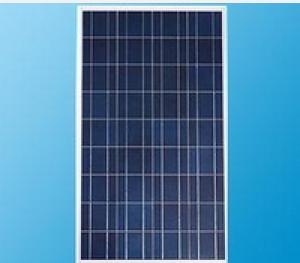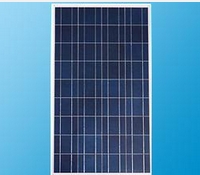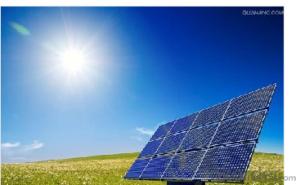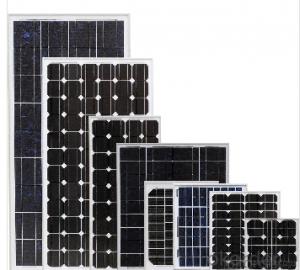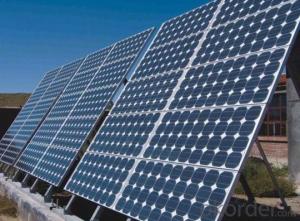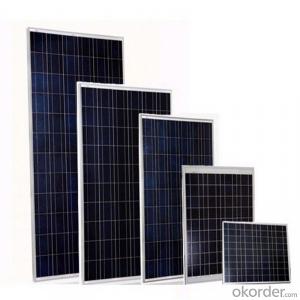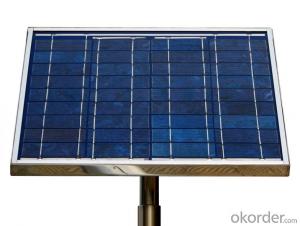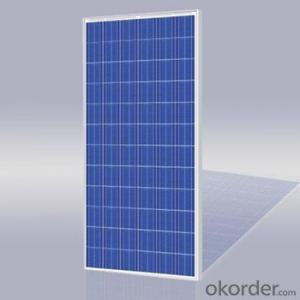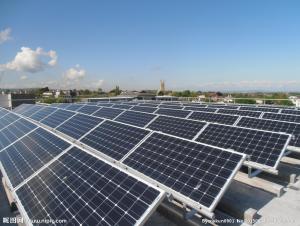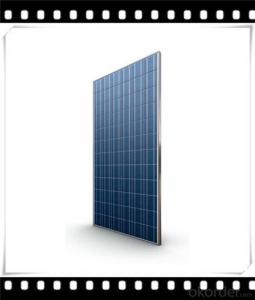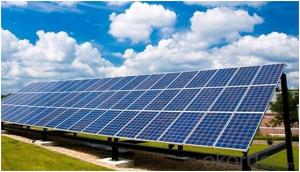Solar Panels Camping 240W Poly Solar Module
- Loading Port:
- China Main Port
- Payment Terms:
- TT OR LC
- Min Order Qty:
- -
- Supply Capability:
- -
OKorder Service Pledge
Quality Product, Order Online Tracking, Timely Delivery
OKorder Financial Service
Credit Rating, Credit Services, Credit Purchasing
You Might Also Like
We are in the position to supply you solar panels(20w~310w).
*Featured products in our warehouses and factory:
Poly 245w,250w (60 cells) Mono 260w -Black (60 cells)
*800MW annual production capacity with full-automatic production line
*All our solar panels are insured by CHUBB
*Bankable in Italy(Unicredit) and Australia(HSBC)
*Certificates: TUV, PV CYCLE, MCS, CE, JPEC, UL, ISO, ICIM and CEC
*Warehouses in Holland and Australia
- Q: The Physics club in our school is trying to convince the Board of Ed to install solar panels in our school, and i was just wondering if anyone with some experience or real expertise in solar energy. I need some points about their usefulness some real pros and cons on maintenance, etc. Anything will help. Personally i would be perfectly for the idea, but i heard that the overall cost of installing them is much higher than the cost of the energy saved and government subsidies, but ive only heard about this.
- You have to approach it as an investment. Ignoring the cost of an inverter for net metering, if we consider a 500 W panel installed for $0 a watt which is $5,000 and consider an average of 8 hours of usable sunlight per day, and at a rate of $0.0 per kWh (schools probably get $0.03 per kWh) then the panel would be saving $2.7 per month in electricity. Considering that the panel has an expected lifespan of 20 years, that would give you an internal rate of return such that the monthly rate satisfies the equation: $5,000 = $2.7 * ( ( - / R^24 ) / ( - / R ) - ) By binary method we get R = 0.99588342. Taking this to the 2th power to annualize it we get Ra = 0.9570 which means that we are getting an annual return of -4.83% per annum so investing in the solar panel is the same as making an investment at an interest rate of -4.83% per year. True interest rates are low and you only get about .3% per annum by putting money in a CD but that still beats investing in solar panels which gives you a negative return on your money. Solar panels need to get a lot better before they are a good investment.
- Q: Is there a free site or resource that will teach you how to do this? Hopefully step by step and tells you how to buy all the parts ect?Which is the best resource for sale earth4energy, homemadeenergy, ect? Do they actually work and also as well as those which are professionally done?They say it will cost under $200 for a panel, but how much will this panel actually produce I mean how many panels would you have to make to produce 00% of your homes energy?
- I have no idea the out put of the panel you plan to make, but $200.00 will not even come close to power much. You don't say whether you want to power your house straight from the solar panels (not possible, because the sun doesn't shine 24/7). That being said,you will need a very large array to power your house,going to battery's to inverter to get AC power. Your initial cost would be around $25000,00, but you might be eligible for a tax rebate and maybe a rebate from your state and power company. There is a lot more to be said on the subject,but this is enough to either get you started or discouraged.
- Q: hi,i have 4 solar panels. I can get 9V 400mA when i wired them parallel. The question is: how can i make a regulator circuit to store power into batteries.
- wire them in series parallel to get 8 volts at 200 mA, and that should charge a 2 volt battery. You may want to put in a series diode to prevent the battery from discharging into the panel when the sun is out. At 200 mA, depending on the battery size, you may not need much control, as that low a current will not overcharge a large battery, like a small auto battery. In fact it will take a very long time to charge it. edit: But do i need to add a regulator? If by that you mean a voltage regulator, no, as a solar panel has a high output resistance, and that will limit the current into the battery. If you mean a charge controller, if the battery is small, you may need a charge contoller to avoid overcharging the battery. But that is not a voltage regulator. .
- Q: How much does it cost to replace a solar panel?
- The cost of replacing a solar panel can vary depending on several factors such as the size, type, and quality of the panel, as well as any additional installation or labor costs. On average, the cost can range from a few hundred dollars for a small residential panel to several thousand dollars for a larger commercial panel. It is always best to consult with a solar panel installer or supplier to get an accurate estimate based on your specific needs and requirements.
- Q: I am looking to get some solar panels for my home to just power a few lights, a fan or two. I have a generator but I want that only to power the fridge and maybe some other small stuff for convenience.But mainly want the solar panels for the lights and fans. Any one have an idea of how about I go to figuring this all out? Should I call a contractor or anything?
- I okorder / for find a local solar panel installer. Hurricanes may damage the solar equipment, so be sure to cover on insurance.
- Q: Can solar panels be installed on a canopy or pergola?
- Yes, solar panels can be installed on a canopy or pergola. In fact, these structures can provide an ideal location for solar panel installation as they are often situated in areas with good sun exposure. By placing solar panels on canopies or pergolas, you can maximize the use of available space while also providing shade and protection from the elements.
- Q: okay so i want to know if solar panels shine. ------(MY Q'S ABOUT BLINDNESS DOESN'T MEAN PERMANENT OMG I CAN'T SEE! BLIND BUT THAT WE JUST CANquot;T SEE AT THE MOMENT BECAUSE OF THE LIGHT.)------------------------------like if/when they face the sun is there a glare to the people around?-if there is would the person have to look directly at it? -Could it reflect off of other objects and cause temporary blindness or just shine light in person's eyes?-if there were windows and mirrors near the solar panel would it affect a person's sight?-and if it did for how long would it hurt or take affect?-and is this physics? like-solar panels and how they work is that physics or some other category?
- Solar panels reflect less sun than a piece of window glass, and people aren't harmed by the sun's reflection off windows. Also, solar panels tend to be tilted more or less directly toward the sun, so the light that they reflect is back at the sun, not down into the street or yard where people are. Those huge power tower concentrating solar thermal plants have a brilliant light reflected off the boiler. But those are put out in the desert, away from people.
- Q: i am doing this group project fro school. I would like to know if anybody knows anything about how to read a Spec. Sheet on Solar panels and where I could go to start researching them. Anything would be great!
- Rate ,power , voltage and effencicney are four important iterms to choose one battery.
- Q: How do solar panels affect roof warranty?
- Solar panels can potentially affect roof warranties depending on the specific terms and conditions set by the manufacturer or installer. It is advisable to consult with the manufacturer or installer and review the warranty documents to understand any potential impact on the roof warranty when installing solar panels.
- Q: planning to get one, for a store/house, we use alot of electricity at least 500-3000 dollars a month. how much money would this save us? how big would we have to get the solar panel?[aproximately]
- There are a lot of factors to consider. Net metering, utility rates, number of hours of daylight, size and orientation of roof or other location. I can tell you I had a 3.74 kwhdc system which reduces my bill by about $200 a month. It cost $26K installed, I received a $0K rebate from my utility and a $2K federal tax credit. Businesses have always been able to get a 30% fed. tax credit, this year everyone gets it. If this is a business you plan on owning for a long time there is no reason why you can't do the install in stages. Of course making sure you are conserving as much energy as possible will also help. Using energy efficient lighting, appliances and electronics, Turning off lights, monitors, computers, printers etc when people go home, sharing printers and other resources, adjusting the thermostat and using natural light can all help reduce your electricity usage.
Send your message to us
Solar Panels Camping 240W Poly Solar Module
- Loading Port:
- China Main Port
- Payment Terms:
- TT OR LC
- Min Order Qty:
- -
- Supply Capability:
- -
OKorder Service Pledge
Quality Product, Order Online Tracking, Timely Delivery
OKorder Financial Service
Credit Rating, Credit Services, Credit Purchasing
Similar products
Hot products
Hot Searches
Related keywords
